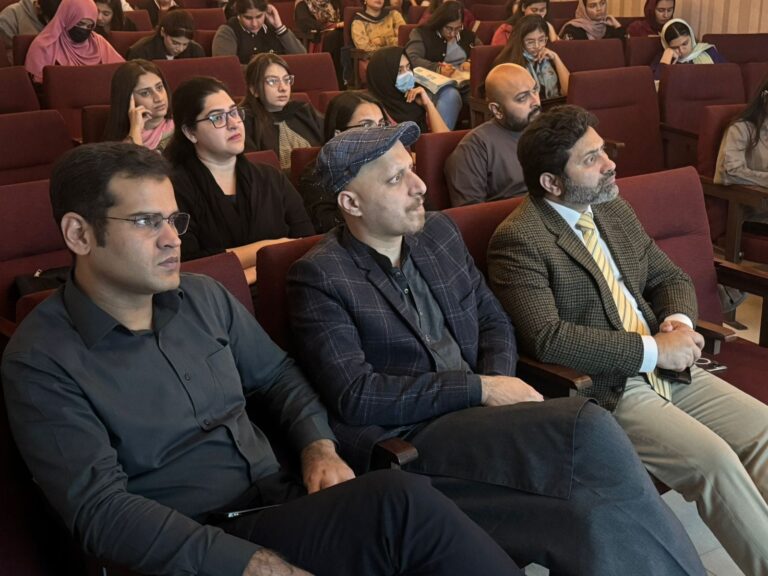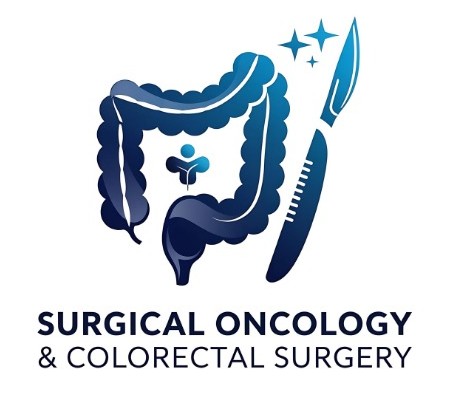Laparoscopic Colorectal Surgery in Pakistan
Colorectal diseases impact millions of people all over the world, usually disrupting everyday life with pain, distress, and fear. At Oncology Surgery in Pakistan, we specialize in laparoscopic colorectal surgery, a modern, minimally invasive treatment method that assures faster healing and improved results. Whether you’re encountering colorectal cancer, hemorrhoids, Crohn’s disease, or diverticulitis, our expert group, led by Dr. Ahsan Shafiq, provides empathetic, advanced care. We work closely with colon and rectal surgeons to ensure the best possible outcomes using safe and effective surgical procedures that protect surrounding blood vessels, maintain healthy blood supply, and preserve abdominal integrity.
What Is Laparoscopic Colorectal Surgery?
Laparoscopic colorectal surgery applies small incisions via which specialized instruments and a camera are inserted, permitting the surgeon to operate specifically. This procedure is commonly used for conditions like:
- Colorectal cancer
- Diverticulitis
- Inflammatory bowel disease (IBD)
- Ulcerative colitis
- Crohn's disease
- Colorectal polyps
- Hemorrhoids (advanced or recurring)
- Rectal prolapse
Unlike conventional open surgeries, laparoscopic procedures minimize concussion to covering tissues, resulting in:
- Shorter hospital stays
- Less post-operative pain
- Reduced scarring
- Faster return to normal activities
- Lower risk of infection
The type of surgery depends on the condition and location of the disease. Some cases may require surgery to remove cancerous growths or affected bowel segments, while others focus on relieving symptoms and restoring bowel function.

Symptoms of the Laparoscopic Colorectal
Some colorectal problems may go unrecognized until they cause considerable pain. Seek professional talk if you experience:
Constant Abdominal Pain or Cramping
Blood in Stool or Rectal Bleeding
Chronic Constipation or Diarrhea
Unexplained Weight Loss
Bloating, Gas, or Sickness
Nausea or vomiting
Fatigue or Deficiency due to Anemia
Difficulty passing stools
Impulsive Changes in Bowel Habits
Purposes of Laparoscopic Colorectal Surgery
- Safely remove diseased tissue with minimal damage to healthy organs.
- Improve quality of life by resolving hurting or debilitating symptoms.
- Encourage faster healing and shorter hospital stays.
- Address symptoms such as abdominal pain, bloating, constipation, and diarrhea for improved daily comfort.
- Restore normal bowel habits and reduce complications like blockages or irregular bowel movements.
- Minimize pain and discomfort during the recovery process, leading to faster resumption of normal activities.
- Present obscure surgical procedures with minimal scarring

Types of Colorectal Surgeries We Offer
1. Laparoscopic Colectomy
A minimally invasive surgical procedure involving removal of a part of the colon to treat cancers, blockages, or inflammatory infections. This helps preserve surrounding abdominal wall structures and blood vessels.
2. Transverse Colectomy
Surgical removal of the transverse colon, usually required for cancer or chronic inflammation. Often involves evaluation of number of lymph nodes to ensure accurate cancer staging and treatment option planning.
3. Hemorrhoidectomy (Advanced Hemorrhoids Surgery)
Laparoscopic therapy for regular or thrombosed hemorrhoids that haven’t responded to conservative methods.
4. Colorectal Cancer Surgery
Targeted surgical treatment for cancer cells in the colon or rectum, assuring complete tumor removal with accuracy. This may involve surgery to remove tumors while ensuring healthy blood supply is maintained.
Dr. Ahsan Shafiq – Colorectal Surgeon Pakistan
Dr. Ahsan Shafiq is a board-certified, appreciatively experienced colorectal specialist in Pakistan, known for his expertise in state-of-the-art laparoscopic surgery procedures. He has completed hundreds of successful surgeries and is one of the few surgeons presenting comprehensive laparoscopic colorectal surgery in Lahore and other major cities. Recognized as the best colorectal surgeon in Lahore, his success rates and patient outcomes are among the highest.
Book appointment colorectal surgeon today with Dr. Ahsan Shafiq for personalized care, expert diagnosis, and a treatment option tailored to your needs. We proudly serve patients in Lahore, Islamabad, Rawalpindi, and Karachi, offering trusted care from the colorectal specialist Rawalpindi residents also rely on.

Get Treatment with Us
At Oncology Surgery in Pakistan, we are committed to providing high-quality care and complex treatment choices that are adapted to your specific needs. Laparoscopic colorectal surgery are our expertise, and our team of professionals offers minimally invasive procedures that consider your comfort and speedy recovery first. We are here to help you at each phase, from the initial consultation to the care post surgery.
From Consultation to Recovery
1. Consultation
We begin with a complete examination, including physical examination, colonoscopy, and diagnostic imaging.
2. Personalized Treatment Plan
Your care is custom to your situation, overall health, and preferences. Our team will discuss the risks, benefits, and expected outcomes.
4. Minimally Invasive Surgery
Using the latest laparoscopic surgery techniques, surgery is performed with precision to reduce trauma and facilitate healing.
4. Postoperative Care
We closely observe your recovery. You’ll receive advice on diet, activity, and medication to ensure optimal healing.

Post Medication
After laparoscopic colorectal surgery, medications play a key role in managing pain, preventing infections, and supporting your recovery process. Here’s an overview of the types of medications you might be prescribed:
- Pain relievers to ease discomfort
- Antibiotics to control infection
- Anticoagulants (blood thinners) to stop blood clots
- Anti-nausea drugs to reduce digestive discomfort
- Stool softeners to avoid stress during bowel movements
- Proton pump inhibitors (PPIs) to protect the abdomen lining
Most Common FAQs
Laparoscopy shows smaller incisions, faster recovery, and less pain, while open surgery may be needed for complex cases. The choice depends on the patient’s condition and surgeon’s recommendation.
You can predict mild discomfort, a hospital stay of 2–5 days, and a return to normal activities within 2–3 weeks, depending on your recovery.
Yes, a colectomy is considered significant abdominal surgery, involving the surgery to remove parts or all of the colon.
The survival rate varies with the underlying condition but is generally high for non-cancer patients and comparable to open surgery for cancer cells removal.
Surgical choices include right hemicolectomy, left hemicolectomy, sigmoid colectomy, and low anterior resection, depending on the tumor position and blood supply.
Survival rates rely on cancer stage, but early-stage colorectal cancer surgery can have a 5-year survival rate of 70–90%. Outcomes also depend on the number of lymph nodes involved and timely intervention.
Book an Appointment Today
Don’t ignore the caution signs of colorectal conditions. Whether you’re concerned about colorectal cancer, hemorrhoids, or need a colorectal surgery consultation, help is just a call away. Book appointment colorectal surgeon today with Dr. Ahsan Shafiq, the trusted name in colorectal surgery in Pakistan.
